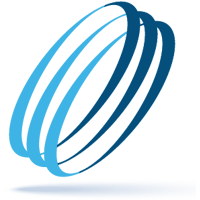What you should know about the internet, deep web and dark web
Share this:
As you read on, you will learn that while searching the “internet” using popular search engines, such as Google, Bing, Yahoo, etc., you are gaining access to accessible, indexed links. These indexed links are used to rank search engine results based on relevancy, inbound links and keywords. Online, it is important to remember there is the internet, deep web and then the dark web and there is a difference in all of them.
Accessing any of them is easy, but they are all used in very different ways. As a matter of fact, you are most likely accessing the deep web more often than you realize. Let’s dive into the deep and dark web and see if the benefits outweigh the risks.
The Deep Web
It is called the deep web because it’s just below the surface – not dark, but deep. Think of the internet as an ocean. The surface is at the top, which is easier to see or access; the deep web is the deeper part beneath the surface; the dark web is at the bottom.
The deep web is a subset of the internet (or surface web) that is non-indexed by the major search engines. Webpage links that are non-indexed are out there; however, you would have to have the URLs to find them. When search engines crawl the internet, they visit one web page at a time, the links on that page and then the links on subsequent pages.
Think of it like this. If you were to search for a book at your local library, Google would not return a meaningful result because the data is located on the library’s servers. To find it, you would need to use the search bar on the library’s website. This would be an accessible, non-indexed link. So, just about every search you perform “internally” on a website, you are accessing deep web content. These are referred to as gated sites.
In short, what is on the deep web?
The content on the deep web includes anything behind a paywall or requires sign-in credentials and includes any content that its owners have blocked web crawlers from indexing. A few examples are medical records, fee-based content, membership websites and confidential corporate web pages.
The Dark Web
The dark web is a subset of the deep web. The buzz is mostly whether it’s safe or even legal. The “dark” web is one thing, and the “deep” web is another, although you may see them together more than separately. The difference is that the dark web is restricted and has non-indexed pages. So as a result, popular search engines do not search for them. The dark web requires an anonymizing browser, e.g., Tor, I2P and/or Freenet, to be accessed.
The dark web is undeniably used for nefarious purposes, such as criminal activity and immoral/illegal reasons; these are sites that sell illicit goods and services. They have flourished even more thanks to cryptocurrency, which enables two parties to make a trusted transaction without revealing each other’s identity.
Despite the progress law enforcement is making at finding and prosecuting owners of illegal sites, cyber activity, with the likes of credit card, credentials and accesses trades, continues at an accelerated pace. Cyber crime has increased by 300% in the last three years as of this writing.
While all dark web sites are not illegal or reprehensible, some serve as a valuable purpose in helping people communicate in areas of the world that are hostile to free speech, government eavesdropping or where internet access is criminalized. Further, security experts use the dark web for situational awareness and threat analysis to stay abreast of what’s happening underground.
In short, what is on the dark web?
The content on the dark web requires an anonymizing browser, e.g., Tor, I2P and/or Freenet, to be accessed and includes primarily any content that its owners have blocked web crawlers from indexing. Most estimates put it at a very small percentage of users, and not all is used for illicit purposes.
The deep web and dark web offer a certain degree of privacy an anonymity
The deep web is meant to protect information that is to be kept private. However, that is not always the case. For example, if you access your bank account, local library, e-commerce sites, etc., they are not really “private” per se. These types of sites know when you have accessed your account.
The dark web is used by those who prefer total anonymity and want to control access for privacy purposes, or because their activities are illegal. With certain precautions, what is done there cannot be tracked or traced backed.
This illustration shows the difference in the two.

Solutions
There are ways to help any sized business mitigate the growing threat of dark web danger. Monitoring and analyzing the dark web 24/7/365 can alert and protect businesses of Cybersecurity threats.
To learn how to safeguard your company against cyber criminal activities, Connect with a Client Success Manager to schedule a time to discuss your needs and how we can meet them.
Make IT Work
-
Talk with an OrlanTech expert
-
Discover reliable advice and fast support
-
Be safe, secure and productive




